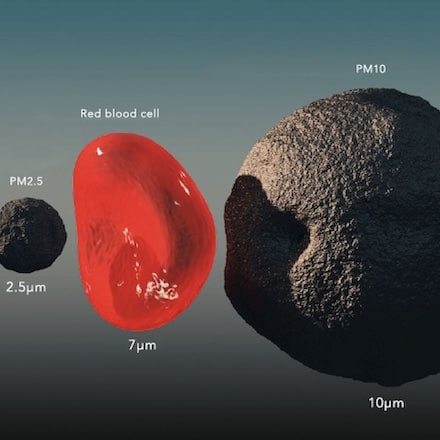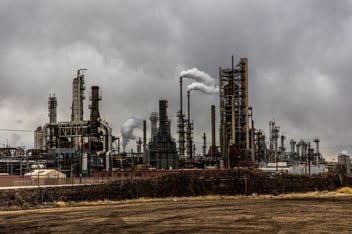Breathing Easy: Udaipur's Mission to Prioritize Citizen Health with Clean Air
The NCAP goals may seem herculean to accomplish, but drop by drop, an ocean is formed. A similar example can be seen in Udaipur, where the city recently took a crucial step towards achieving its air pollution reduction goal by adopting the best-in-class air pollution control equipment, Pure Skies.
The recently released World Air Quality Report 2022 by IQAir highlights the dire situation of air pollution in India, with Delhi ranking as the second most polluted city globally. India continues to have the worst air quality. Despite a slight decrease in the annual average PM2.5 level in 2022, 39 of the world's 50 most polluted cities are in India. The report warns that high levels of PM2.5 in India pose a severe risk to people's health, causing respiratory and cardiovascular diseases.
Indian cities experience air pollution from multiple sources, among which the transportation sector contributes 20-35% to PM2.5 in Indian cities, and stubble burning is a major challenge, particularly in Delhi and North India. The NCAP was updated in 2022 with a new target of a 40% reduction in PM concentration by 2026. Despite these efforts, relaxed environmental compliance rules for coal mines in 2022 have led to increased production.
Air pollution is a problem that can only be solved over a lifetime. The fact that we might not see the fruition of our efforts can be daunting, but we need to accept that our goal is to reduce air pollution. Activities that help reduce air pollution can range from policies made by world forums, and corporate and government collaborations, to individual actions. The key to success lies in finding the right intersection between our efforts and resources, which can bring about positive change.
Udaipur, one of the non-attainment cities under India's National Clean Air Program, was experiencing a surge in air pollution levels. Sources of air pollution as identified by the Central Pollution Control Board in Udaipur are:
- Transportation: The increasing number of vehicles, especially diesel-powered ones, is a significant source of air pollution in Udaipur.
- Industries: The presence of several small and large-scale industries, such as chemical, fertilizer, and cement plants, contribute to air pollution.
- Construction activities: The rapid urbanization and infrastructure development in Udaipur have led to an increase in construction activities, which result in dust and other particulate matter emissions.
- Open burning of waste: Open burning of waste, including plastic and other hazardous materials, is another source of air pollution.
- Domestic sources: Domestic sources such as cooking, heating, and burning of solid fuels for lighting and warmth also contribute to air pollution.
- Natural sources: Dust and particulate matter from natural sources such as soil erosion, pollen, and forest fires also contribute to air pollution in Udaipur.
The city municipal corporation explored ways to mitigate air pollution and was presented with Pure Skies by Devic Earth. After obtaining their consent, the pilot project of Pure Skies was initiated in Udaipur. This installation aims to reduce the levels of the most harmful air pollutants, PM2.5 and PM10, from the ambient air, enhancing the overall air quality of the city to promote a healthy environment for its citizens.
Pure Skies by Devic Earth has shown remarkable results and garnered appreciation from officials who acknowledged the technology's effectiveness in reducing pollution levels. This initiative towards clean air is also a disruptive step towards the aim of reducing particulate matter concentration by 20% by 2024 in compliance with India's National Clean Air Program goals.
Udaipur's efforts set an example of commitment to the health and well-being of citizens and encourage policymakers to adopt green solutions for public health. The city's commendable efforts demonstrate how clean air can be accessible to all and show how green technologies can help to reduce air pollution.
Talk to our experts today to help improve the air quality in your city!

.svg)
.webp?width=1080&height=1080&name=Free%20Case%20Study%20Steel%20Plant%20(1).webp)






Post Comments